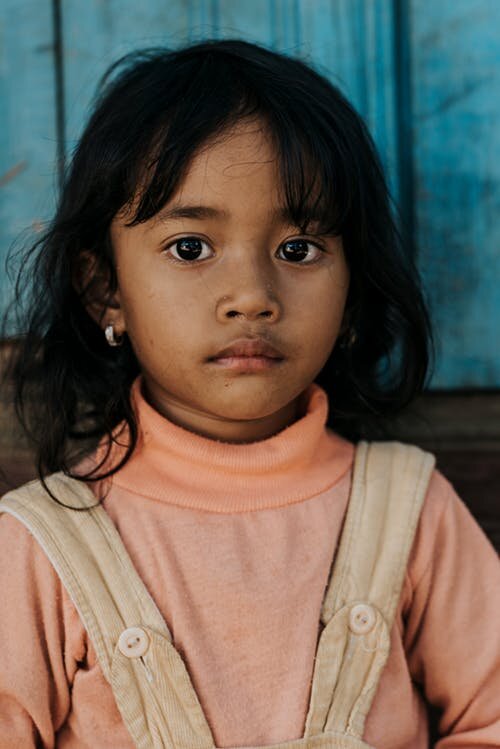MODULE 4: TREATMENT
Welcome
Thank you for choosing to deeply engage with the complex issue of culturally appropriate service delivery for CALD victims/survivors of child sexual abuse.
1. What this module covers
As Module 4 is long, it has been broken up into two videos.
Features of good practice with CALD client victims/survivors of child sexual abuse
Barriers to uptake of formal services
A proposed service delivery model
Cultural competency, at personal and organisational levels
Patriarchy, and medical vs sociological approaches to the treatment of mental illness
Professional omnipotence
Visual inclusiveness
Interpreters (brief)
Ethnically diverse workforce and ethnic-matching
Cultural competency training
Multicultural framework
Data collection
Links with local CALD organisations
2. Resources
3. Learning video # 1
This video is a pre-requisite for those looking to obtain CPD Certification for engaging with the course.
Click on the link above to view the video on YouTube. The recommended setting is HD for the highest quality.
4. Learning video # 2
This video is a pre-requisite for those looking to obtain CPD Certification for engaging with the course.
Click on the link above to view the video on YouTube. The recommended setting is HD for the highest quality.
5. Private reflection
Now that you have viewed the Module 4 videos, feel free to privately reflect further on these questions:
M4_1: Are there DEIDENTIFIED/ANONYMISED examples you can share from your work practice that demonstrate the barriers to help-seeking among CALD victims/survivors of CSA?
Non-cultural barriers
Lack of awareness of services
Lack of worthiness and wanting to forget
Fear of children being removed
Migratory/acculturative barriers
Fear of deportation
Language barriers
Cultural barriers
Fatalistic and/or religious beliefs
Normative reliance on intra-familial support
Shame for seeking extra-familial support
M4_2: Are there DEIDENTIFIED/ANONYMISED examples you can share from your work practice that demonstrate the importance of confidentiality among CALD victims/survivors?
M4_3: What do you think/feel about the service delivery model proposed in the program?
This model argues that service should be client-centred, so that individuals are not ‘boxed in’ by their ethnicity.
It also identifies a comprehensive list of variables for consideration by practitioners – across four tiers (trauma, CALD, other, and service) – that are relevant to the Australian (and other comparable western multicultural) context.
M4_4: Are there DEIDENTIFIED/ANONYMISED examples you can share from your work practice that demonstrate the service-relevant variables for CALD victims/survivors?
Trauma-related variables include:
Gender
Age and duration of abuse
Severity
Known/unknown perpetrator and who
Location (including institutional context)
CALD-related variables include:
English proficiency and need for interpreter
Generational status and presence of intergenerational conflict
Years of residency, acculturation, and attitudes about collectivism and patriarchy
Social isolation/disconnection from extended family
Religion and orthodoxy
Citizenship/visa status, fear of deportation, and history of forced migration
Awareness and understanding of systems and services, and fear of authorities (especially among the newly arrived)
Cultural identity, sense of belonging, being visibly different, stereotyping, racism, discrimination, social exclusion, and vilification
Other variables include:
Neighbourhood
Family structure
Disability
Sexuality
Impacts on physical and mental health
Social difficulties
Length of delay in disclosing, presence of supportive responses to disclosure, and attachment style to caregivers post-disclosure
Service-related variables include:
Cultural competency at the personal level
Non-racist attitudes, empathy, patience, and open-mindedness
Value for and practice in cultural self-awareness and reflection
Sense of efficacy in working with CALD clients
Being aware of the pros and cons of a medical versus sociological approach to the treatment of mental illness
Encouraging self-help, family, and group therapy to avoid professional omnipotence in a one-on-one setting
Cultural competency at the organisational level
Promotional/visual inclusiveness
Using interpreters or bilingual staff trained in matters to do with sexual assault and providing such training
Having an ethnically diverse workforce including in management positions
Providing regular ‘cultural competency’ training to service provider staff
Using ‘a multicultural framework’ within mission statements, organisational philosophies, practice frameworks, etc.
Mandatorily collecting data on ethnicity-related variables
Strong links with local CALD community members and organisations
M4_5: Do you have any other thoughts or comments you would like to make that this video triggered for you?
The videos talk about English proficiency because this is the mainstream language in Australia, however principles of honouring non-dominant languages in any country still hold.





